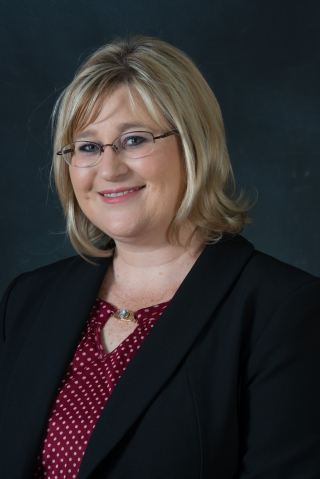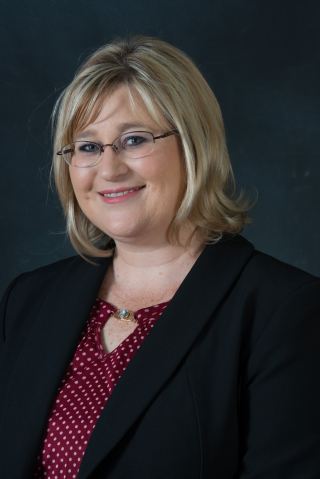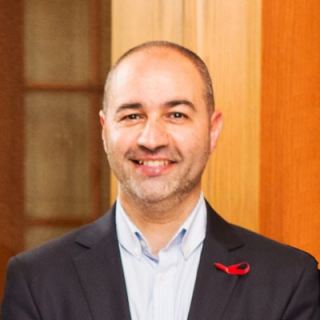Career risk mitigation – the way to go for corporate high flyers
Career risk mitigation – the way to go for corporate high flyers by Michelle Moss* (Signium Africa: www.signium.co.za) 2019 Obsolescence. It happened to VCRs. It also happens to executives, even high flyers; especially the tunnel-vision variety that obsess about the job on hand.
Obsolescence no longer takes decades. It can happen at pace as technologies change and businesses react to new legislation, heightened competition and more demanding customers. Forward-thinking executives increasingly realise they have to be fit for purpose today and in five years’ time. Obsolescence is a career risk and like any risk can be managed by putting proper mitigation strategies in place.
Talent search and management companies – so-called corporate head-hunters – face increasing calls from individuals for a heads-up on changing competency requirements. Often, the request comes from the mid-life CEO, the high achiever who took a leadership role aged 45 and is determined to be in place (or to have moved on to bigger and better things) by the time he or she is 55. Competency-focused future-spotting is driven by the desire to mitigate the risk of a stalled career. However, parameters widen almost immediately.
Reference to relevant literature like the World Economic Forum’s ‘Future of Jobs Report 2018’ and the work of the MIT Initiative on the Digital Economy indicate that personal competencies are inextricably linked to the corporate future. The business or industry vision invariably shapes the personal quest for continuing relevance by individual executives.
A global player like Riverwaves (a world leader in bespoke competency-based HR solutions) is close to these developments. Alexandra Pascu, Riverwaves’ GM - Middle East and Africa, notes: “Customised competency models drive business strategy while delivering benefits across the board - at individual, HR department and organisational levels.”
According to studies on the statistical validation of competency models**, the tangible return on investment includes a 63% reduction in staff turnover through increased employee satisfaction (attributable to greater clarity on performance expectations), a 19% improvement in employee performance and a 12.5% rise in sales and profits (a by-product of competency-based training). Adoption of a bespoke competency model enables organisational vision and values to be translated into employee behaviour.
According to Pascu, the corporate embrace of competency modelling has been accompanied by a global increase in demand for in-house competency training for line managers and talent professionals. So, we see shared focus on future-ready skills by both the organisation and its people (including those in the C-suite).
Individuals looking to avoid personal obsolescence increasingly find themselves working in a de facto partnership with organisations that are just as eager to stay current and relevant. The result doesn’t have to lead to a total immersion in new technologies. We may find ourselves working alongside robots and co-bots while dealing with digitisation and artificial intelligence, but very human attributes will make us special and keep us on top.
The World Economic Forum believes workforces will become even more diverse (multi-racial, multi-cultural and multi-generational with greater female representation). Orchestrating the input of ‘gig’ workers, freelancers, short-term project teams and consultants will be vital as structures become more flexible. Such scenarios help explain a quick competency to-do list suggested by MIT’s Erik Brynjolfssons. He advises us to put our focus on: o Creativity o Emotional intelligence (interpersonal skills, teamwork and leadership) o Passion for our work Apparently, love never goes out of style.
Not even love for what you do.
-- ENDS --
*Michelle Moss is a Director at Signium Africa (previously Talent Africa), a leading South African-based executive search and talent management company servicing sub-Saharan Africa. www.signium.co.za **Meta-analysis study reported in “The economic value of emotional intelligence competencies and EIC-based HR programmes”, Lyle Spencer. In Cherniss, C. and Goleman, D. eds. The Emotionally Intelligent Workplace: How to Select for, Measure, and Improve Emotional Intelligence in Individuals, Groups and Organisations. San Francisco, CA: Jossey-Bass/Wiley 2001. Spencer, Lyle, “Competency Model Statistical Validation and Business Case Development.”www.inscopecorp.com/resources-papers-statistics.aspx, 2004.
Website: www.signium.co.za Tel: +27 11 771 4800 Issued By: Tale Spin Media & Marketing Zelda Williams 082 461 0689 or Gillian Schmid 082 960 3233 This email address is being protected from spambots. You need JavaScript enabled to view it. This email address is being protected from spambots. You need JavaScript enabled to view it.
Career risk mitigation - the way to go for corporate high flyers
By Michelle Moss*
Obsolescence. It happened to VCRs. It also happens to executives, even high flyers; especially the tunnel-vision variety that obsess about the job on hand. Obsolescence no longer takes decades. It can happen at pace as technologies change and businesses react to new legislation, heightened competition and more demanding customers. Forward-thinking executives increasingly realise they have to be fit for purpose today and in five years’ time. Obsolescence is a career risk and like any risk can be managed by putting proper mitigation strategies in place.
Talent search and management companies – so-called corporate head-hunters – face increasing calls from individuals for a heads-up on changing competency requirements.
Often, the request comes from the mid-life CEO, the high achiever who took a leadership role aged 45 and is determined to be in place (or to have moved on to bigger and better things) by the time he or she is 55. Competency-focused future-spotting is driven by the desire to mitigate the risk of a stalled career. However, parameters widen almost immediately.
Reference to relevant literature like the World Economic Forum’s ‘Future of Jobs Report 2018’ and the work of the MIT Initiative on the Digital Economy indicate that personal competencies are inextricably linked to the corporate future. The business or industry vision invariably shapes the personal quest for continuing relevance by individual executives. A global player like Riverwaves (a world leader in bespoke competency-based HR solutions) is close to these developments.
Alexandra Pascu, Riverwaves’ GM - Middle East and Africa, notes: “Customised competency models drive business strategy while delivering benefits across the board - at individual, HR department and organisational levels.” According to studies on the statistical validation of competency models**, the tangible return on investment includes a 63% reduction in staff turnover through increased employee satisfaction (attributable to greater clarity on performance expectations), a 19% improvement in employee performance and a 12.5% rise in sales and profits (a by-product of competency-based training).
Adoption of a bespoke competency model enables organisational vision and values to be translated into employee behaviour. According to Pascu, the corporate embrace of competency modelling has been accompanied by a global increase in demand for in-house competency training for line managers and talent professionals.
So, we see shared focus on future-ready skills by both the organisation and its people (including those in the C-suite). Individuals looking to avoid personal obsolescence increasingly find themselves working in a de facto partnership with organisations that are just as eager to stay current and relevant. The result doesn’t have to lead to a total immersion in new technologies. We may find ourselves working alongside robots and co-bots while dealing with digitisation and artificial intelligence, but very human attributes will make us special and keep us on top.
The World Economic Forum believes workforces will become even more diverse (multi-racial, multi-cultural and multi-generational with greater female representation). Orchestrating the input of ‘gig’ workers, freelancers, short-term project teams and consultants will be vital as structures become more flexible. Such scenarios help explain a quick competency to-do list suggested by MIT’s Erik Brynjolfssons. He advises us to put our focus on: Creativity Emotional intelligence (interpersonal skills, teamwork and leadership) Passion for our work Apparently, love never goes out of style. Not even love for what you do.
-- ENDS --
*Michelle Moss is a Director at Signium Africa (previously Talent Africa), a leading South African-based executive search and talent management company servicing sub-Saharan Africa. www.signium.co.za **Meta-analysis study reported in “The economic value of emotional intelligence competencies and EIC-based HR programmes”, Lyle Spencer. In Cherniss, C. and Goleman, D. eds.The Emotionally Intelligent Workplace: How to Select for, Measure, and Improve Emotional Intelligence in Individuals, Groups and Organisations. San Francisco, CA: Jossey-Bass/Wiley 2001.Spencer, Lyle, “Competency Model Statistical Validation and Business Case Development.”www.inscopecorp.com/resources-papers-statistics.aspx, 2004.
Website: www.signium.co.za
Tel: +27 11 771 4800
Love your job … and live happily ever after
By Michelle Moss* (www.signium.co.za)
Valentine’s Day is not just about flowers and candle-lit dinners. It’s an annual opportunity to contemplate the power of love and the promise of happiness when you find the only one for you.
‘The one’ doesn’t have to be a person. It could be a job; especially one offering fulfilment and satisfaction. Research indicates love is good for you. You perform better and live longer. You feel happy, care-free. Everything seems possible. You feel less stress (love really is good for your heart). Love for your job is positive, too.
Happiness at work fosters team spirit while good health supports high productivity and quality outcomes. Unfortunately, true love for the job is rare. A 2017 Gallup survey found 70% of employees are “actively disengaged”. They are indifferent, confirming that the curse of ‘presentism’ afflicts countless companies.
The lovelorn are frequently misunderstood. It’s the same at work. 89% of bosses say staff leave for money while only 12% of job-movers say money prompted their exit – so says the book The 7 Hidden Reasons Your Employees Leave by talent-retention expert Leigh Branham.
You stop being faithful because you are out of love. Clearly, finding something to love about your job is key to a lasting relationship. This prompted the inclusion of a ‘love test’ in questions put to job candidates and clients over several months.
They were asked ‘what is the one thing you love about your job?’ Many said the coffee breaks, the great cappuccino and water-cooler moments when they could chat to colleagues. The office bar or on-site drinks also featured strongly. A chance to unwind with peers is greatly appreciated. Altruism and the opportunity to make a difference were also highlighted.
People love to feel their work matters, that what they do improves lives or addresses social problems. Technical proficiency can also instil love.
‘Digging out the truth’ created some loving moments for one claims investigator and childhood Nancy Drew fan. Change, unpredictability and surprises were also cited. People love facing the unknown, not knowing what to expect from day to day, but coming out on top. Many love to learn. They felt their position gave them a chance to broaden their knowledge and ask questions.
Wow moments also foster love – those occasions when you complete a project or champion an idea and see the impact on your company and industry. You love the firm for believing in you and letting you take the initiative. However, negative feedback was frequent. Some confessed they loved the day the boss was away (‘because he’s crazy and impossible to work with’).
Others said they simply loved going home, and many said ‘Friday’ and a weekend away from work. So, what can we learn about love for the job and the chance to get the best out of your loved ones? Firstly, small things matter. Colleague interaction and socialising are important. Secondly, create a sense of purpose. People need to see the bigger picture and have a role in the wider scheme of things. In addition, change the routine when you can. Same old, same old is boring. People love change and challenge.
Some even love occasional chaos for the thrill of conquering it. Building learning and development into the job also helps. It’s worth the effort. When people love their job, you’ll love the results.
*Michelle Moss is a Director at Signium Africa (previously Talent Africa), a leading South African-based executive search and talent management company servicing sub-Saharan Africa.
Website: www.signium.co.za Tel: +27 11 771 4800
Signium Africa and Riverwaves sign strategic HR partnership
South African talent search specialists *Signium Africa and UK consultancy *Riverwaves today announced the launch of a strategic partnership to bring world-leading competency-based HR solutions to companies across sub-Saharan Africa. Signium Africa is primarily known for head-hunting top executive talent for some of the continent’s leading corporates and state-owned enterprises. Riverwaves is a global leader in the optimisation of ‘people capability’ through the customisation of competency-driven HR models designed to energise and strengthen corporate teams.
Following in-depth exposure to Riverwaves’ Intellectual Property (IP) and proprietary modelling tools, Signium Africa is positioned to apply its partner’s globally respected competency framework, build internal capability and develop HR solutions specifically crafted to meet the unique needs of each client company, at every organisational level.
Said Michelle Moss, Director, Leadership Consulting, at Johannesburg-based Signium Africa: “We have offered competency-based services for some time. Now the partnership with Riverwaves enables us to deliver world-leading competency solutions that have been proven internationally across multiple industries and deliver measurable benefits, no matter what the nature of the team or level of responsibility.
“Access to innovative IP of this quality meets a huge need as the challenge in South Africa and so many countries across the continent is to make the most of available talent, either through internal development or external recruitment. The competency fit has to be optimised and Riverwaves models are designed to do just that.” Hisham El Badawy, Non-Executive Board Member of Riverwaves, noted: “The relationship with the seasoned professionals at Signium Africa opens up exciting opportunities in a region with boundless potential.
Many markets in sub-Saharan Africa show significant growth, creating challenges for business and state enterprises. “Unlock the potential of the people of sub-Saharan Africa and you unlock the potential of the region as a whole. Worldwide experience over more than 20 years tells us the key is professionally implemented competency-based HR solutions with the capacity to invigorate both the individual and the organisation. “The link-up with Signium Africa gives us the ability to roll out those solutions via a reputable partner with intimate knowledge of the region.” Ends
*Signium Africa, previously Talent Africa, is a leading South Africa-based executive search and talent management company with reach across sub-Saharan Africa. www.signium.co.za
*Riverwaves, is an HR consulting firm that helps companies realise the potential of their people. They operate globally out of the UK with a strong business partner network. www.riverwaves.co.uk





